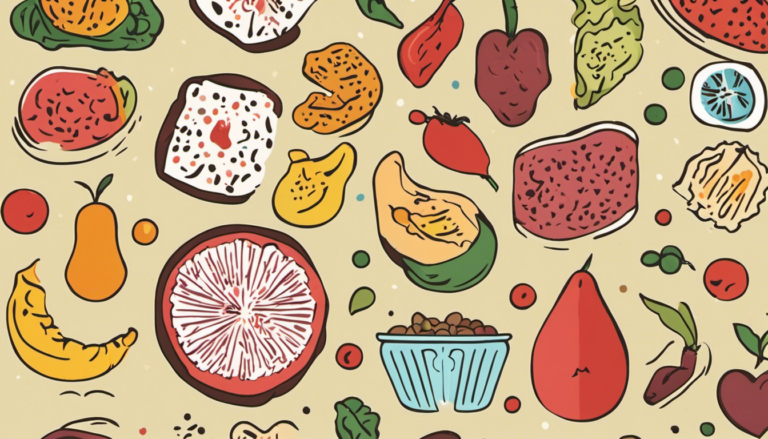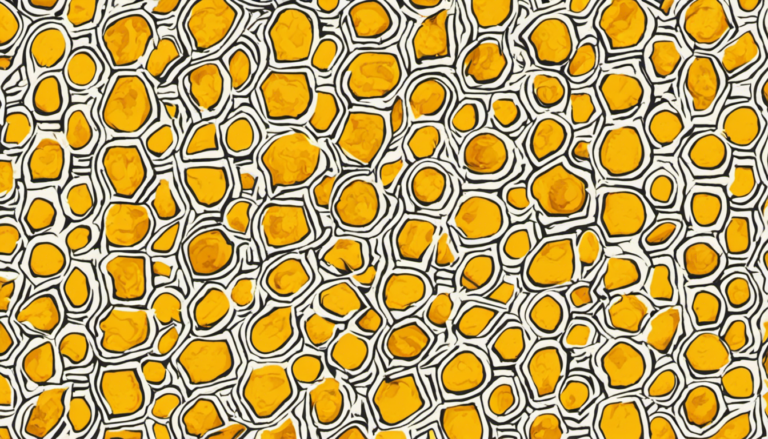Are Zero-Calorie Foods a Myth
I. Introduction
Zero-calorie foods, as the name suggests, are those that are claimed to contain such a small amount of calories that the energy you burn eating them cancels out their caloric content. This concept has been a popular topic in the diet and health industry, with many people seeking these foods as a way to lose weight. However, the reality of zero-calorie foods is not as simple as it seems.
Understanding the concept of zero-calorie foods requires a basic knowledge of what calories are and how they function in our bodies. This will help us to better understand the truth behind the claims of zero-calorie foods and their impact on our diet and health.
In this article, we will delve into the science behind calories, the concept of negative calorie foods, and the truth about zero-calorie foods. We will also explore the impact of food labels and marketing, the potential health risks associated with zero-calorie foods, and healthier alternatives to consider.
II. Understanding Calories
Calories are a unit of energy. In dietary terms, they refer to the amount of energy that food provides when consumed. Our bodies need this energy to perform basic functions such as breathing, circulating blood, and cell production. This is known as our basal metabolic rate.
The number of calories a person needs can vary based on factors such as age, sex, weight, height, and physical activity level. Consuming more calories than our bodies need can lead to weight gain, while consuming fewer can lead to weight loss.
However, not all calories are created equal. The source of the calories we consume can have a significant impact on our health. For example, consuming 200 calories from a doughnut is not the same as consuming 200 calories from a plate of vegetables. The latter provides essential nutrients that our bodies need, while the former is mostly empty calories.
III. The Concept of Negative Calorie Foods
Negative calorie foods are a concept that has been popularized in the diet industry. The idea is that certain foods, typically fruits and vegetables, require more energy to digest than they provide in calories. This would theoretically result in a net loss of calories, aiding in weight loss.
Examples of alleged negative calorie foods include celery, grapefruit, lettuce, cucumber, and broccoli. However, the concept of negative calorie foods is largely a myth. While these foods are low in calories and high in fiber, they do not create a significant calorie deficit.
Furthermore, focusing solely on negative calorie foods can lead to a lack of essential nutrients in our diet. A balanced diet that includes a variety of foods is crucial for our health.
IV. The Science Behind Zero-Calorie Foods
The concept of zero-calorie foods is based on the thermic effect of food, which is the energy our bodies use to digest, absorb, and process the nutrients in the food we eat. However, the thermic effect of food only accounts for about 10% of our total calorie expenditure.
While it’s true that some foods, such as celery and cucumbers, have a low-calorie content and require energy to digest, the amount of calories burned during digestion is small. Therefore, these foods are not truly “zero-calorie.”
Furthermore, our bodies process different types of food in different ways. Protein, for example, requires more energy to digest than fat or carbohydrates. This is why high-protein diets can aid in weight loss.
V. Debunking the Myth of Zero-Calorie Foods
Scientific evidence does not support the concept of zero-calorie or negative calorie foods. While some foods are low in calories and high in nutrients, no food has zero or negative calories.
The role of fiber in calorie counting is also important to consider. Foods high in fiber are more filling, which can help to control hunger and aid in weight loss. However, fiber still provides calories, and consuming large amounts of high-fiber foods in an attempt to reduce calorie intake can lead to digestive issues.
It’s also important to note that consuming zero-calorie foods in place of balanced meals can lead to nutrient deficiencies and other health problems. A balanced diet that includes a variety of nutrient-dense foods is crucial for health.
VI. The Impact of Zero-Calorie Foods on Diet and Weight Loss
While zero-calorie foods may not lead to weight loss on their own, they can play a role in a balanced diet. Foods that are low in calories and high in nutrients can help to control hunger and provide essential nutrients.
However, relying solely on these foods for weight loss can lead to nutrient deficiencies and is not a sustainable or healthy approach to weight loss. A balanced diet and regular physical activity are the most effective ways to achieve and maintain a healthy weight.
The psychological impact of zero-calorie foods is also important to consider. Labeling foods as “zero-calorie” can lead to an unhealthy relationship with food and eating. It’s important to focus on the nutritional value of foods, rather than just their caloric content.
VII. The Role of Food Labels and Marketing
Food labels can be misleading, especially when it comes to calorie content. Some foods labeled as “zero-calorie” actually contain a small amount of calories. In the United States, for example, a product can be labeled as zero-calorie if it contains less than 5 calories per serving.
The impact of marketing on the perception of zero-calorie foods is also significant. Many products are marketed as zero-calorie as a way to appeal to health-conscious consumers. However, these products often contain artificial sweeteners or other additives that can have negative health effects.
It’s important to read food labels carefully and be aware of the marketing tactics used by food companies. A product labeled as zero-calorie is not necessarily healthy or beneficial for weight loss.
VIII. Health Risks Associated with Zero-Calorie Foods
While zero-calorie foods may seem like a healthy choice, they can have potential negative health effects. Many zero-calorie foods contain artificial sweeteners, which have been linked to a variety of health problems, including weight gain, heart disease, and diabetes.
Furthermore, consuming zero-calorie foods in place of nutrient-dense foods can lead to nutrient deficiencies. This can have a negative impact on health and can lead to a variety of health problems.
It’s also important to note that consuming large amounts of zero-calorie foods can lead to overeating. This is because these foods often lack the fiber and protein that help to make us feel full.
IX. Alternatives to Zero-Calorie Foods
Instead of focusing on zero-calorie foods, it’s more beneficial to focus on consuming a balanced diet that includes a variety of nutrient-dense foods. Foods such as fruits, vegetables, whole grains, lean proteins, and healthy fats provide the nutrients our bodies need to function properly.
Some healthy, low-calorie food options include berries, leafy green vegetables, lean proteins like chicken and fish, and whole grains like quinoa and brown rice. These foods are not only low in calories, but also high in essential nutrients.
The importance of a balanced diet cannot be overstated. A diet that includes a variety of foods from all food groups can provide the nutrients our bodies need to function properly, aid in weight management, and reduce the risk of chronic diseases.
X. Conclusion
In conclusion, the concept of zero-calorie foods is largely a myth. While some foods are low in calories and high in nutrients, no food has zero or negative calories. Focusing solely on these foods for weight loss can lead to nutrient deficiencies and is not a sustainable or healthy approach to weight loss.
Instead of focusing on zero-calorie foods, it’s more beneficial to focus on consuming a balanced diet that includes a variety of nutrient-dense foods. This can provide the nutrients our bodies need to function properly, aid in weight management, and reduce the risk of chronic diseases.
Remember, a healthy diet is about balance, not restriction. It’s important to enjoy a variety of foods and not to label foods as “good” or “bad.” A healthy relationship with food involves enjoying all foods in moderation and focusing on how they make you feel, rather than just their caloric content.
FAQs
What are zero-calorie foods?
Zero-calorie foods are those that are claimed to contain such a small amount of calories that the energy you burn eating them cancels out their caloric content. However, no food has zero or negative calories.
What are some examples of alleged zero-calorie foods?
Examples of alleged zero-calorie foods include celery, grapefruit, lettuce, cucumber, and broccoli. However, these foods do not create a significant calorie deficit.
What are the potential health risks associated with zero-calorie foods?
Many zero-calorie foods contain artificial sweeteners, which have been linked to a variety of health problems, including weight gain, heart disease, and diabetes. Consuming zero-calorie foods in place of nutrient-dense foods can also lead to nutrient deficiencies.
What are some healthy alternatives to zero-calorie foods?
Some healthy alternatives to zero-calorie foods include fruits, vegetables, whole grains, lean proteins, and healthy fats. These foods provide the nutrients our bodies need to function properly and can aid in weight management.
What is the most effective way to lose weight?
The most effective way to lose weight is through a combination of a balanced diet and regular physical activity. It’s also important to focus on the nutritional value of foods, rather than just their caloric content.







